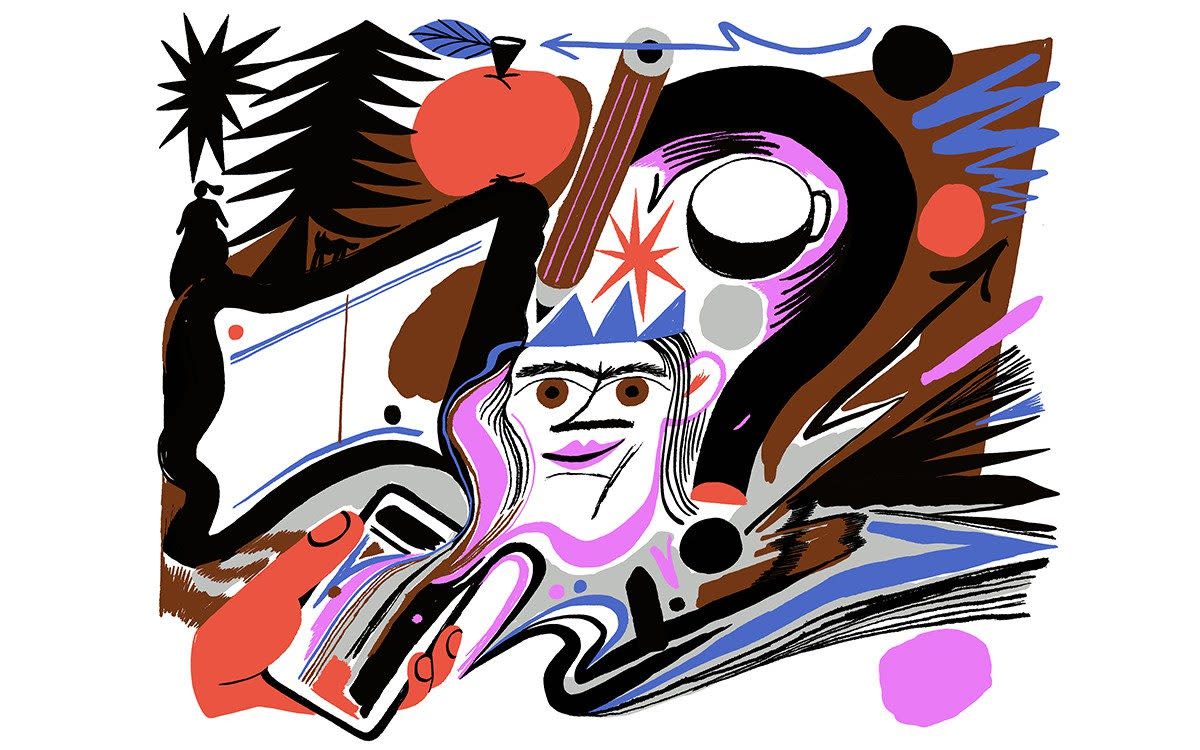Googling takes the mystery out of life – I’d rather be blissfully ignorant

There is plenty about modern life to cause celebration and aggravation in equal measure...but it is never safe to make an assumption about how the different generations feel about anything, from vegans to scented candles.
This week Christopher Howse and Guy Kelly urge you to put down the smartphone – and rely on your own knowledge (or lack of)...
There’s a nice big grassy square with trees where two crows live that I often see on my walk to the office.
Vincent Square is named after William Vincent, a man with a fleshy face like Lord Cameron of Chipping Norton’s and a horsehair wig. He was headmaster of Westminster School from 1788 and one day ordered a ploughman to mark out 10 acres of Tothill Fields as a playing field.
I was trying to work out in my head how long each side would be if it was square. I can’t say I succeeded. But I did have the false dawn of knowing that there are 4,840 square yards in an acre.
Younger people tend not to know that there are 4,840 square yards in an acre. Nor that there are 640 acres in a square mile – a pleasing number, neither too many nor too few. The information is not kept secret from them, and if they were interested in square measure, they’d probably think in hectares. But they are not interested.
Nor are they interested in the year George III became King or Harold Wilson became Prime Minister. (Clue: they are different years.) If they really must find out, they have a little friend to tell them – their phone.
This friend has spoilt many a conversation with so-called real people. Both sides are seldom resolute in resisting appeals to the online assistant referee.
It seems to me that not knowing things is like using satnav to drive or even walk somewhere. You never know where you are. Finding your way entails not only knowing your destination but also your present location.
So facts are useful not for their own sake but as lines thrown out like grappling irons by a boarding party. They need not all connect, but if some do then you’re not all at sea.
The illiterate are not ignorant and confused compared to phone-based know-nothings. The illiterate often know a lot about people and nature. But perhaps this is why know-nothings believe conspiracy theories. I’m not sure. It might just be the radiation from phones. That’s what I read on my phone.
As it gets harder to come by, I’m finding ignorance increasingly blissful. For a while it was nice to be able to google anything – ‘If nine Chris Graylings were laid end to end, would they be longer than an adult fin whale?’; ‘What’s Sally Gunnell’s favourite jacket potato topping?’; ‘Is Donald a tiny duck or Mickey a massive mouse?’ – and have an answer in seconds. (No, prawns, and Mickey’s a big boi.)
But there is delight to be found in not knowing everything. ‘In nil sapiendo vita iucundissima est,’ as the saying, in I guess French or Welsh or whatever, goes. Understand your field, stay curious, advance understanding, et cetera, but also… don’t? Some things are just better left ungoogled.
‘How do they dismantle the big cranes?’ is one I often wonder. Somebody told me it’s with another crane, but that’s absurd, like fighting fire with fire, so I guess I’ll never know. Or why do we yawn? Or when police horses see regular horses, do they look down on them, or feel envious? Don’t tell me.
Lamentably, there are fewer things to not know these days. It’s why we must be thankful there’s no Shazam for faces – yet. ‘Who’s that over there?’ is not a question Google answers.
There’s a woman who works at The Telegraph, for instance, who my friend and I see around the office all the time. ‘Who is that?’ we used to say, marvelling when this ubiquitous but anonymous woman walked by. There were, of course, ways to find out. But it became a beautiful mystery, so we moved to do what we could to protect our ignorance, spending nearly a decade avoiding stealing a glance at her lanyard, and never speaking about her to anybody. There she goes again, we’d think, the last remaining unknown.
Then one day this summer, my friend returned from a meeting looking ashen. ‘She was there,’ she said, without needing to explain. ‘I learned her name and job title. I am devastated. Now you have to know as well.’ I too was devastated.
So imagine my joy to discover recently that I’ve since forgotten all those details again. ‘Oh, f—k, so have I!’ my friend said, when I told her. What bliss. Is this what being elderly is like?

 Yahoo News
Yahoo News 
